Between Antisemitism and Activism
The Jewish University Experience in Historical Perspective
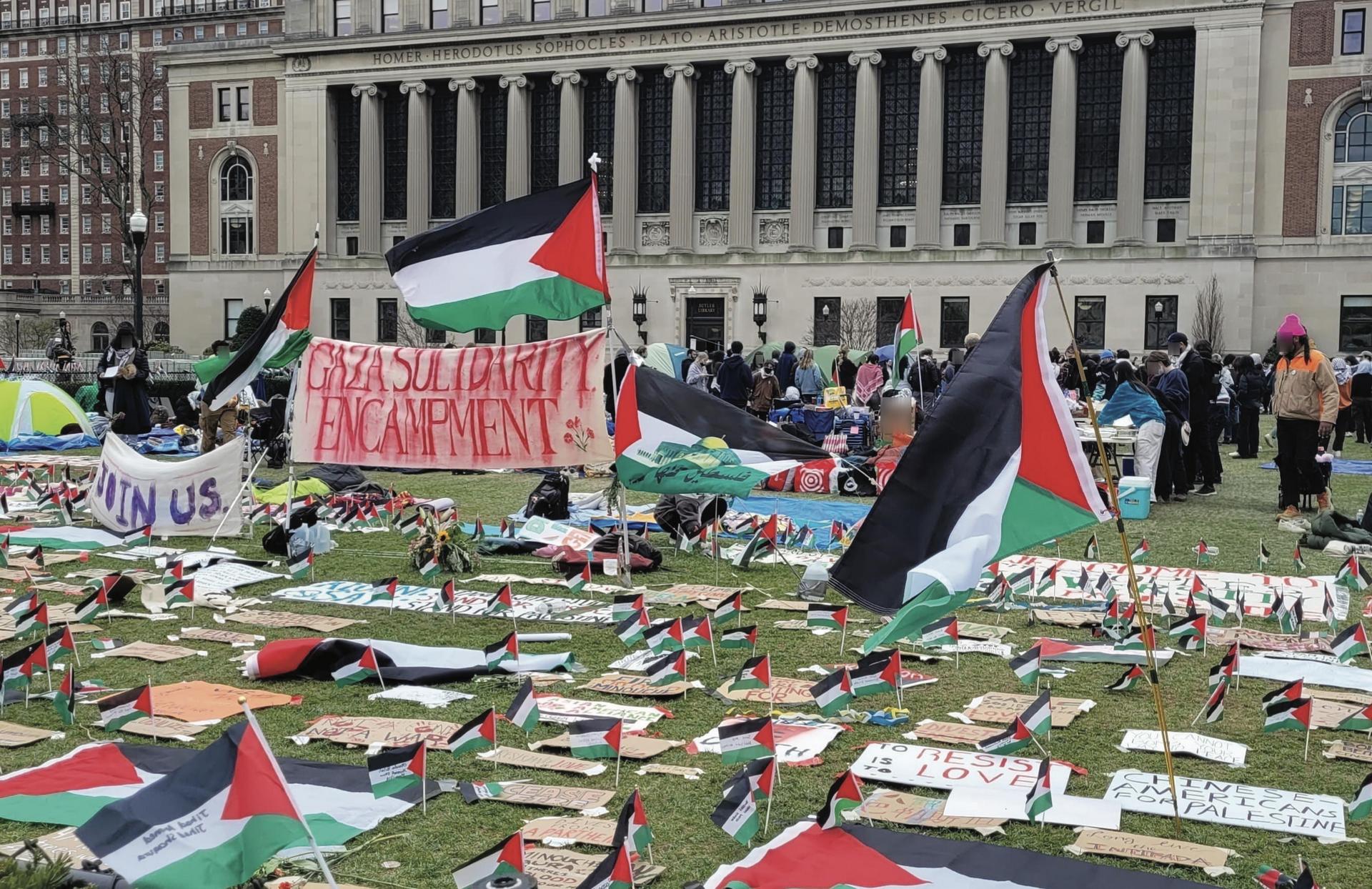
Gaza Solidarity Encampment,
Columbia University, spring 2024.
Source: Creative Commons
Section 5
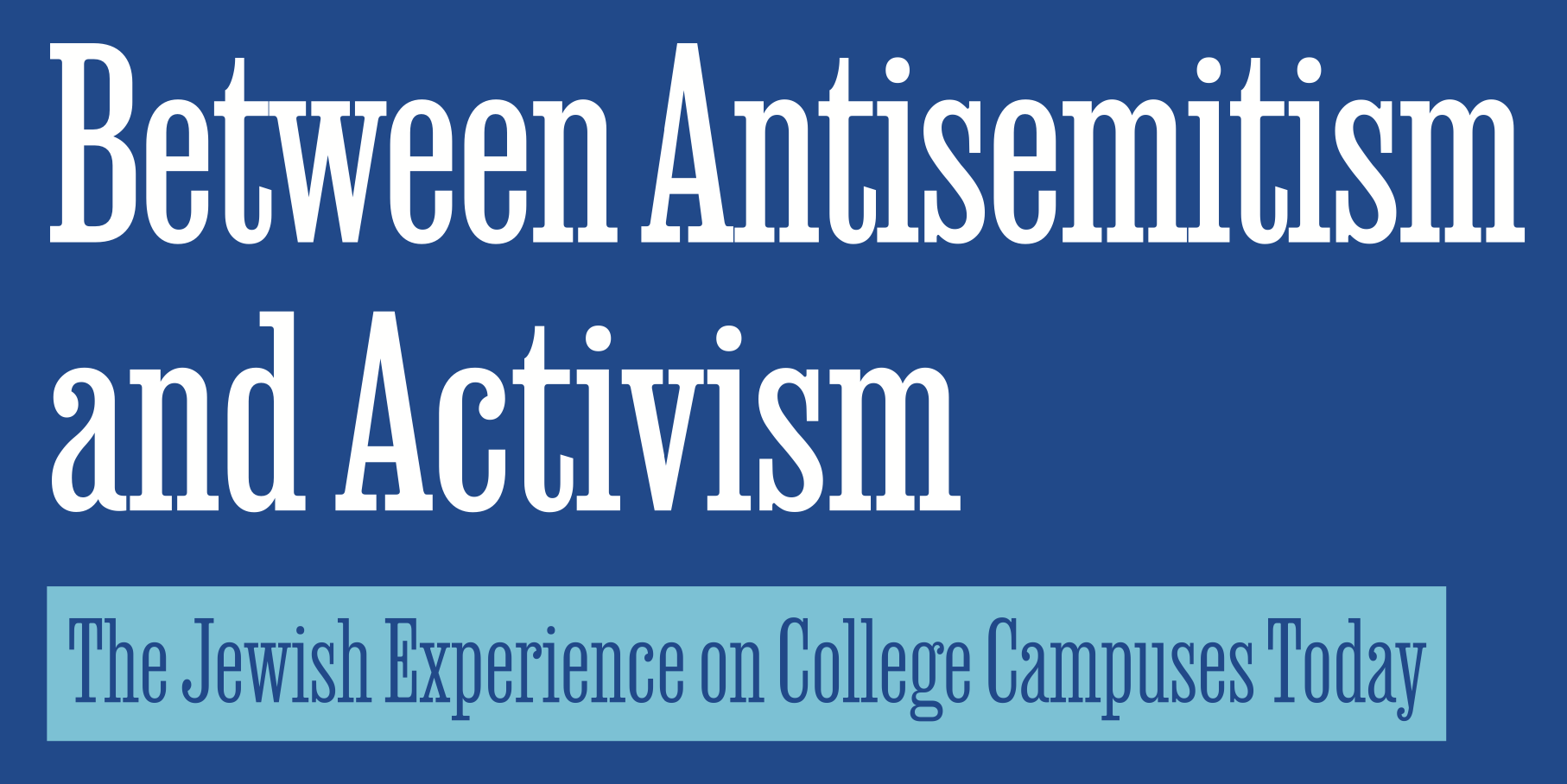
Today's Jewish university experience is being profoundly shaped by the ongoing turmoil in the Middle East. Although Jews on American campuses have keenly followed the course of the Arab-Israeli conflict for decades, the events of October 7th, 2023 and the ensuing international fallout have made the conflict inescapable. Across American campuses, a range of groups, many associated with the Boycott, Divestment, and Sanctions (BDS) movement, have sponsored hundreds of protests that have garnered news headlines and sparked controversy. In so doing, individual Jewish students, faculty, and organizations have been exposed to unprecedented antisemitic harassment, with nearly 40% reporting being directly affected by campus hostility, according to a recent ADL report.
Unlike the situation for Jewish students and
faculty in the 1930s, the present-day situation
reflects the ongoing battle between supporters
of the state of Israel and anti-Zionist
proponents of BDS. Since its
founding in 2005, the supporters
of BDS have argued that boycotts,
divestment, and sanctions are
legitimate methods for pressuring
Israel and its supporters to grant
statehood to the Palestinian
people. Opponents of BDS, by
contrast, have insisted that the
movement is antisemitic, arguing
that it seeks to undermine the State of Israel’s
legitimacy and deny the Jewish people’s right
to state sovereignty.
Complicating the debate is both sides’ use of
historically fraught rhetoric rooted in the Nazi
experience. In recent years, and especially
since October 7th, pro-Palestinian protesters
have equated Zionism with Nazism and alleged
that Israel is perpetrating crimes against
the Palestinians that qualify as a present-
day Holocaust. Meanwhile, some pro-Israel
advocates have accused Palestinians and their
supporters of being present-day Nazis. While
historians have actively exposed the flaws of
such polemical comparisons, they have failed
to halt their spread.
Given the polarized climate, it is not surprising
that divisions have also shown up within the
Jewish college community. On some campuses,
Jewish students and faculty have supported the
BDS movement by enlisting Jewish traditions,
such as Shabbat services and Passover Seders,
in support of the Palestinian cause. In response,
Jewish critics have said such efforts do not
reflect the larger Jewish community’s position
on the Arab-Israel conflict.
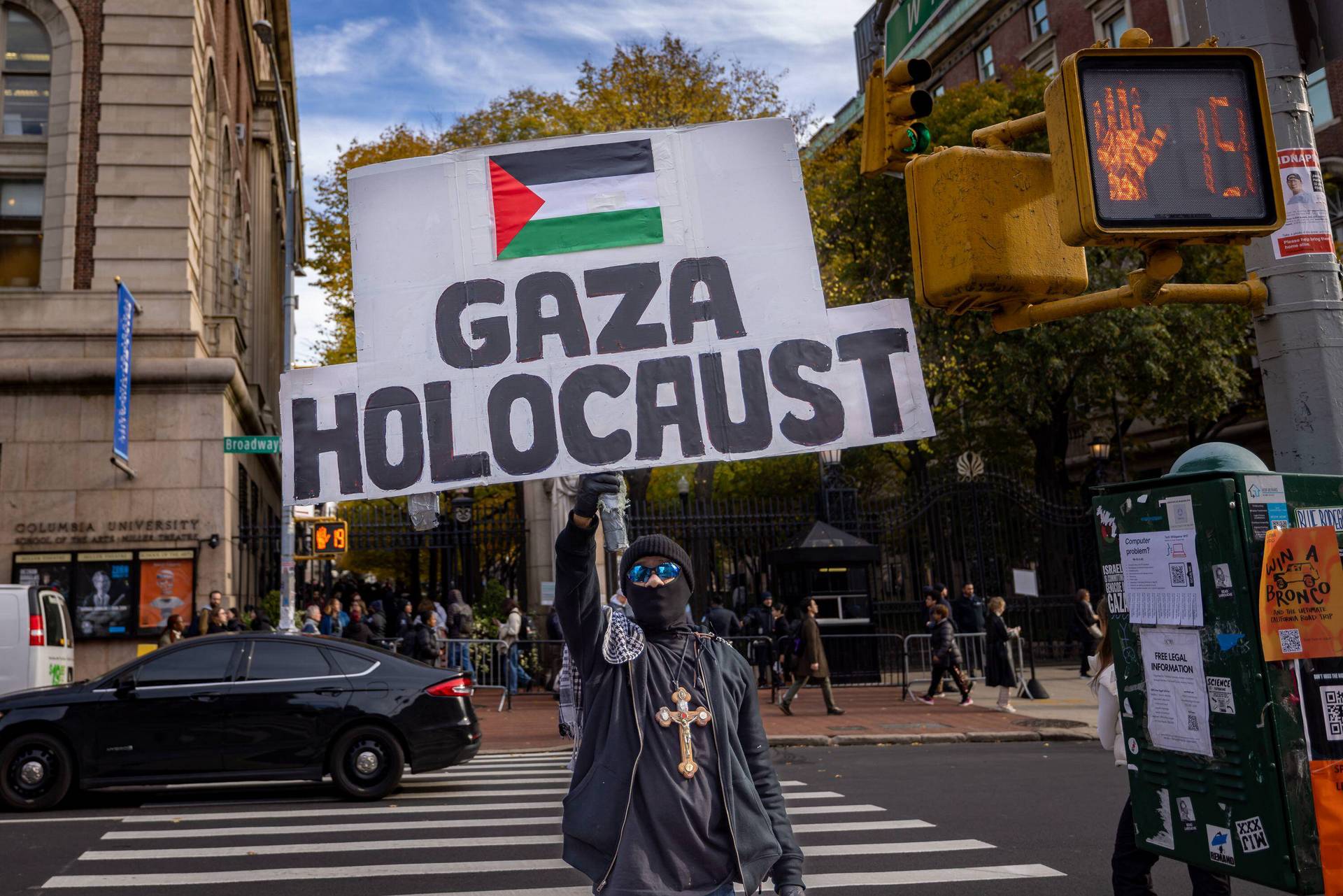
Anti-Israel protester equating the war in Gaza with the Holocaust,
outside of Columbia University, winter 2024.
Source: Alamy
The spread of anti-Israel and anti-Jewish
rhetoric in campus protests has also forced
Jewish students and faculty to rethink the
line between free speech and hate speech.
After Harvard President Claudine Gay failed
to provide a clear answer to Congress in late
2023 about whether “calling for the genocide
of Jews violates Harvard’s rules on bullying
and harassment,” certain Jewish communal
leaders called for including education about
antisemitism in university DEI programs, while
Jewish free speech advocates argued that
campus speech codes were antithetical to
liberal institutions like universities and should
be abolished altogether.
Today, Jewish faculty and students remain
active in seeking solutions to the current crisis
on college campuses. Some are serving on
antisemitism task forces at universities like
Harvard and Columbia and seeking to determine
how campus protests can be regulated to
ensure student safety while permitting room
for free speech. Other Jewish faculty are
taking on leadership roles at newly created
institutes, such as NYU’s Center for the Study
of Antisemitism and the University of Michigan’s
Raoul Wallenberg Institute, to explore the
roots of antisemitism and devise strategies for
combating it. Whether these efforts will improve
the climate on college campuses remains to
be seen, but whatever the future holds, the
historical record suggests that Jewish university
students and faculty will continue to be shaped
by the forces of antisemitism and activism.
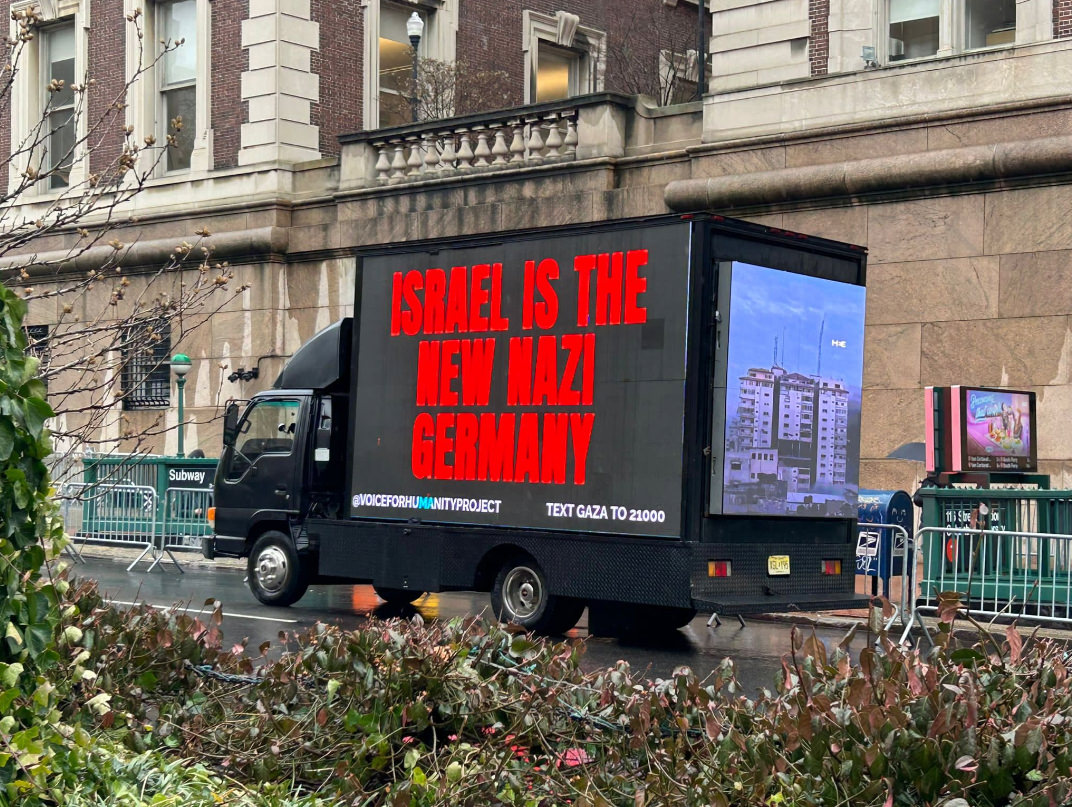
Truck broadcasting message equating Israel with Nazi Germany, outside of Columbia University, winter 2024.
Source: screenshot from X, formerly Twitter
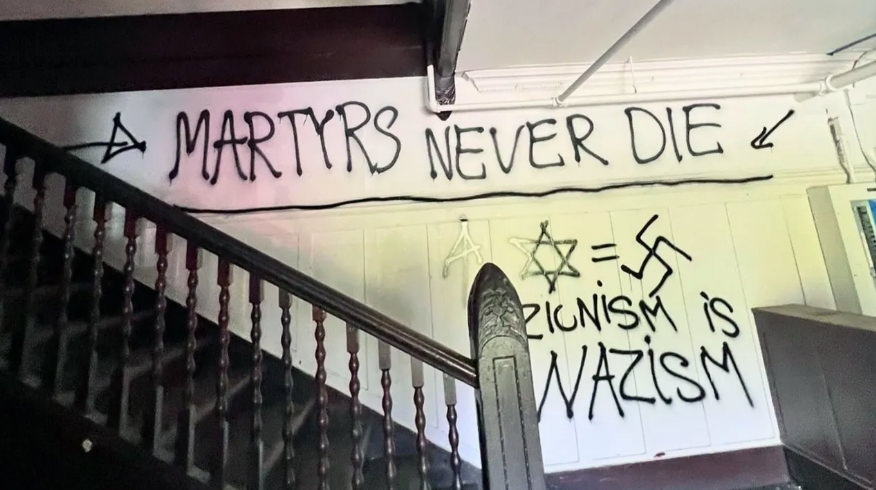
Graffiti equating Zionism and Nazism, University of California Berkeley, spring 2024.
Source: screenshot from X, formerly Twitter
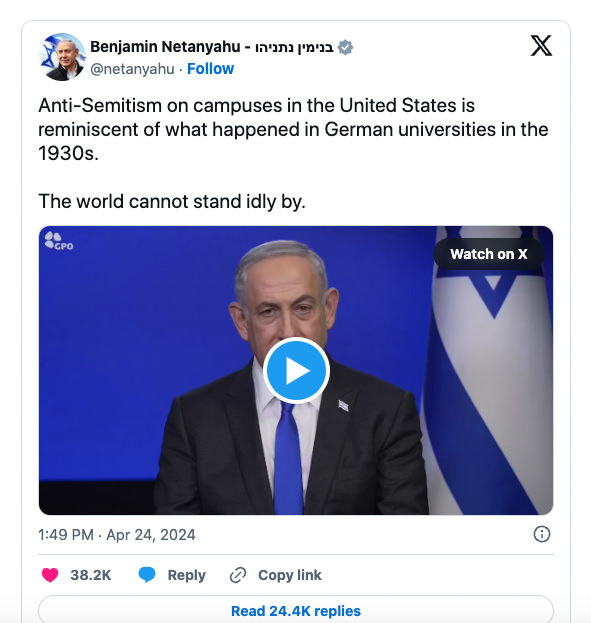
Benjamin Netanyahu equates pro-Palestinian protesters with antisemitic Nazi students in the 1930s.
Source: screenshot from X, formerly Twitter
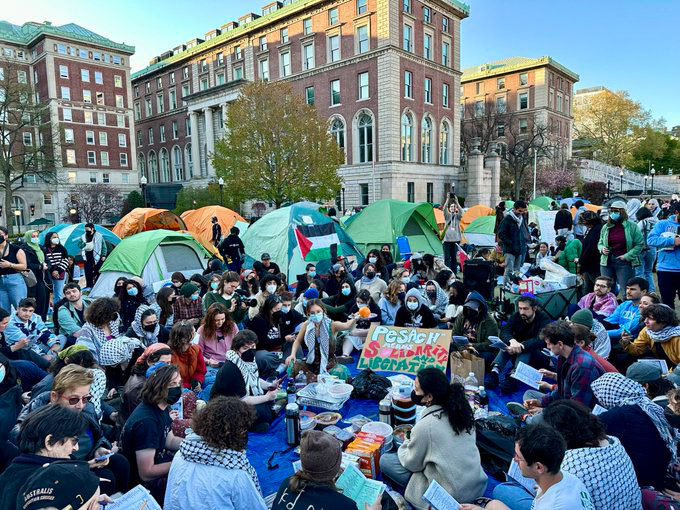
Pro-Palestine students celebrating Passover, Columbia University, spring 2024.
Source: screenshot from X, formerly Twitter
Next →
← Back

